I’ve long been fascinated by the morning rituals and daily habits of successful artists. Examining the eccentricities of my favourite authors and identifying any common habits they share. Of course, there’s no formula for success or a guarantee that if you perform certain rituals you’ll be destined for greatness. That said I do think we can learn an awful lot from studying others, testing out certain habits and rituals and seeing what works for us. I’ve noticed a handful of popular activities through my own research, reading and conducting interviews with various artists. Meditation, physical exercise and journaling all seem to feature highly. Interestingly there are a number of studies and anecdotes that link physical exercise to increased productivity. In fact when Richard Branson was asked “How do you become more productive?” (in The 4-Hour Body by Tim Ferriss) Branson said, “Work out.”
I spoke with five authors about their morning rituals and daily habits, and researched the habits and rituals of four others. So with that said, let’s take a look.
![]() 1. Alison Littlewood
1. Alison Littlewood
Like many horror fans, I first became familiar with Alison Littlewood’s work around the time her debut novel A Cold Season was selected by the Richard & Judy Book Club. Since then she has released a novel every year (two this year, in fact) and has been nominated for a handful of prestigious awards including the Shirley Jackson Award and the British Fantasy Society’s August Derleth Award. Alison Littlewood is one of the most significant voices in British horror. Here’s what she had to say about her morning rituals.
My morning rituals are more about not writing – I don’t feel as if I’ve woken up properly until I’ve taken the dog for a good long walk. It’s good to get some fresh air in the lungs before sitting down, and besides, Dexter [Alison’s dog] just wouldn’t allow it! Once that’s over and a large cup of tea consumed, I sit down and do webby or admin-y things, check Facebook etc, and maybe do some research. Then it’s time for a quick lunch before work can begin in earnest. I’m more of an afternoon person when it comes to writing – I like to know I have a good long stretch of time at the computer ahead of me. Obviously some days go better than others, but I always try and put the hours in so that something can hopefully come together. When it’s going well I completely lose myself in it, at least until Dex (yes, I am ruled by Dog), starts pestering me for treats. I tend to be in the study until the evening. Later on, I try and fit in some reading, which sometimes means getting in some more research but quite often is purely for fun. I can easily lose track of time and read into the night, only to be awoken by the dog licking my nose or shoving his head in my face and demanding his breakfast. Writing to be done or not, I know my place!
–Alison Littlewood, author of A Cold Silence
![]() 2. Stephen King
2. Stephen King
Stephen King is perhaps the most famous and successful living author in 2015. He’s been kind enough to gift us with two excellent non-fiction books that provide glimpses into his personal life, On Writing and Danse Macabre. Thanks to Lisa Rogak’s Haunted Heart: The Life and Times of Stephen King and Mason Currey’s Daily Rituals: How Great Minds Make Time, Find Inspiration, and Get to Work I was able to glean a little more about Stephen King’s rituals and habits.
King writes every day of the year without exception beginning work between 8:00 and 8:30 am. He has a glass of water or cup of tea and takes a vitamin pill each day, ensuring he is in the same seat and his papers and desk are arranged in the same way every single day. In Rogak’s book King explains, “The cumulative purpose of doing these things the same way every day seems to be a way of saying to the mind, you’re going to be dreaming soon.”
King has a daily writing quota of two thousand words and rarely allows himself to quit until he’s reached his goal. He finishes writing between 11:30 am and 1:30 pm at which point he is free for naps, letters, reading, family and watching the Red Sox games on TV.
![]() 3. Jeremy Robert Johnson
3. Jeremy Robert Johnson
Where to begin with Jeremy Robert Johnson? The secret is not to overthink it. Just choose a story at random and you’re going to hit gold, albeit in a grotesque and deliciously unconventional way. Not only has Johnson been nominated for awards, appeared in numerous international anthologies and magazines, been praised by the likes of Chuck Palahniuk and Jack Ketchum, founded his own indie publishing house, but he’s even penned work for the legendary alt-rock band The Mars Volta. So with that said, let’s find out what his secret to success is.
My primary job is as a stay-at-home dad for my son, which means no matter how I may attempt to develop a writing regimen, each day is decided by the fates and/or arbitrary whims of a tiny person with a cognitive capacity slightly above caveman. It's like trying to perform a job on the edge of an event horizon where chaos is the only truth. For example, right now he is shaking a wooden catapult and telling me that his clip-on tie functions as the propeller for Santa's sleigh. A half-eaten piece of bread juts from his shirt pocket. He has just informed me that nothing in this room is a rock. I don't know what to do with this information. It is literally a miracle that I have written anything in the last half decade.
Also, sometimes I disappear to hotel rooms and basements and stay awake for days, writing as furiously as I can. That has helped.
Now my son is telling me that he wants to use his catapult to kill animals to provide food for the homeless. I tell him that this is a kind idea, but I have also figured out that he will not be allowed to roam the streets with his catapult, for the sake of the neighborhood squirrels.
–Jeremy Robert Johnson, author of Skullcrack City
![]() 4. Bret Easton Ellis
4. Bret Easton Ellis
Ever since consuming American Psycho as a sixth form student I’ve been a big fan of Bret Easton Ellis. If you want to learn more about the man behind the books I suggest you check out his excellent podcast, aptly titled Bret Easton Ellis Podcast.
Between his short video interview on Persol’s Tumblr earlier this year and his in-depth interview by Jon-Jon Goulian of The Paris Review in 2012 I have learned a little about Bret’s rituals and habits.
There are a number of things Bret does before writing. He drinks coffee, reads a couple of chapters from the book he’s currently reading and makes his bed. He used to read the newspaper but in our current age of twenty-four-seven news this is less important. Before beginning work he eats breakfast, after which he’s in his office for the majority of the day.
Jon-Jon Goulian interviewed Bret between 1 and 5 pm so not to interfere with his writing or evening routine. Bret often likes to get out of the house after work and meet friends for dinner to contrast with his time spent in the office.
While speaking with The Paris Review, Bret said this of his writing routine, “I start with a rough outline, an experimental, very free-form first draft that’s based on everything I want to include in the novel but that I also know won’t make it into the final draft. And in that first draft there are exercises, samples of how I imagine the narrator might speak if describing something. I ask questions like, Can I use metaphors with this narrator? Will he be able to see something as something else? No, Patrick Bateman won’t be able to do that. Everything is all surface for him.”
![]() 5. Richard Thomas
5. Richard Thomas
Now to LitReactor favourite, editor of award-winning fiction and writer of neo-noir masterpieces, Richard Thomas. Breaker, his follow-up to quite possibly the bleakest novel of 2015 (in a good way), Disintegration, is scheduled for release early next month.
If I'm writing in the morning, it means I've blown a deadline, or am on deadline, and I have a lot of words to get out. For Breaker, a book I wrote in 25 days last December, that was certainly the case. It involved lots of coffee, and closing the drapes, making my office as dark as possible. I want to be a body without organs, as French philosopher Gilles Deleuze describes, the world falling away, no need for anything but the vision, and the ability to keep up with the words. Sometimes I walk around my office and touch books, the leather, the cloth, picking up objects, gazing out the window, trying to tap into the life I've lived, the weirdness, the humanity, the fear, and the fulfillment. I want to move readers, to take them on the ride with me, not a story told from a great distance. I want us to laugh, and cry, and feel sick, sweat, sneer, lust, and smile. I want the words to be remembered, the emotion to resonate long after the final sentence is read.
–Richard Thomas, author of Breaker
![]() 6. Gillian Flynn
6. Gillian Flynn
Gillian Flynn is an author, screenwriter and comic book writer. Her most recent novel, 2012’s Gone Girl, has sold over two million copies and was adapted into a film, directed by David Fincher, last year.
Gillian divulged some of her writing routine and habits in interviews with Crown Publishing and The Daily Beast. Gillian’s routine started after her son was born because, as she explained to Crown Publishing, “16-month-olds do not understand the phrase: ‘Mother is not to be disturbed while she channels her muse, my sweet.’ I couldn’t write anywhere around the house anymore. I needed a lair.”
Gillian’s lair was created by her husband on the bottom floor of her house and is next to “an unfinished basement straight out of The Silence of the Lambs.” Before writing Gillian stares at the computer screen, drinks half a pot of coffee and listens to music to wake up. She usually obsesses over one song. During a particularly rough patch while writing Gone Girl, with a looming deadline and newborn, she danced around to Eminem’s ‘Lose Yourself’. Midway through writing she’ll get the caffeine shakes and regret drinking so much coffee. As a reward for writing a scene, Gillian plays video games such as Galaga and Ms. Pac-man or watches something on Netflix. Gillian advocates “pottering about” admitting, “I’ve had some of my best writing epiphanies when I’m doing things that have nothing to do with writing.” After pottering and playing, Gillian writes a little more, after which she may eat some chewy sprees and write again. Before she returns to her family, Gillian tries to ‘shake off the nastiness’ and listens to something such as the Moses Supposes number from Singin’ in the Rain. “You can’t not be happy while watching Donald O’Connor and Gene Kelly tapdance.”
![]() 7. Sarah Langan
7. Sarah Langan
Sarah Langan is a three-time Bram Stoker award winner and has been featured in the likes of Cemetery Dance, Phantom, Chiaroscuro, Brave New Worlds, Darkness on the Edge and Unspeakable Horror. Sarah is the author of the novels The Keeper, The Missing and Audrey’s Door. You’ll notice a recurring theme when you read about Sarah’s rituals.
My morning ritual: cook breakfast for kids, coffee, pack lunches, coffee, get kids to school, coffee, make small talk with other parents, coffee, go home and stare into the void. Truthfully, I don't have any rituals. You just do the work. That's all there is to it.
–Sarah Langan, author of Audrey’s Door
![]() 8. A.M. Homes
8. A.M. Homes
I first discovered A.M. Homes when I read The End of Alice, as recommended by former co-host of the This Is Horror Podcast, John Costello. The End of Alice is unforgettable, whether you like it or not, it attaches itself to you, burrows its way deep into your psyche.
Speaking on The End of Alice, Homes said, “the idea is you read a bit – throw the book across the room – get up and get it and read some more.”
It was a real challenge finding information on Homes’ writing routines, but being stubborn I persisted and landed upon a couple of interviews with Barcelona Review and Fiction Writers Review. She often uses pencil and paper to write as it allows for ‘better connectivity’ but she will then quickly type things up as she can’t read her writing. A.M. Homes constantly revises her work. Two words in she’ll begin editing, sharpening and tightening. While writing she prefers to drink coke or tea and snacks on chocolate, soup, crackers and peanut butter. Homes meditates, although by her own admission she doesn’t do it often enough, although she does “believe in the importance of just taking the time to notice both the outside world and the inner states.”
![]() 9. Paul Tremblay
9. Paul Tremblay
Having recently penned what may well be the novel of 2015, A Head Full of Ghosts, it’s safe to say there’s a lot we can all learn from Paul Tremblay. His work has been published since the turn of the century and in that time he has released eight novels and close to fifty short stories. That’s an impressive work rate for someone who’s also held down a full-time job as a high school Maths teacher. Here’s what Paul had to say about his daily habits and rituals.
I don't have any daily habits that are exciting. If it's a school morning I wake up early, have a bowl of cereal, and drive 35 minutes to work. I tend to get writing done at night or if I can squeeze any random time out of the school day (a free period here, a free period there). I gave up on ritual a long time ago, as the only way I was going to get things done was to take advantage of the time – could be planned/scheduled, or unexpected – I had. I've written while students are taking tests and I've written while in the bowels of a gymnasium waiting for my son's baseball clinic to finish. For me it's about taking advantage of whatever writable free time presents itself. If I have any rituals, it's the usual self-doubt and browbeating I typically engage in, and the only way to shut that off is to start working.
–Paul Tremblay, author of A Head Full of Ghosts
More Daily Rituals
As I said at the start I’ve a huge interest in morning rituals, writing processes and daily habits. As such I’m increasingly prone to grilling authors on the matter during the This Is Horror Podcast. Whilst this isn’t an exhaustive list, here are a number of episodes and approximate time stamps where the matter is discussed in more depth.
- TIH 068: T.E. Grau [35:50]
- TIH 064: Alison Littlewood [25:30]
- TIH 063: Helen Marshall [04:40]
- TIH 056: Max Booth III [55:10]
- TIH 054: Jeremy Robert Johnson [37:00]
- TIH 053: Rich Hawkins [46:55]
- TIH 050 Paul Tremblay [44:45]
- TIH 048: Shaun Hutson [54:00]
- TIH 044: Josh Malerman [21:20]
- TIH 043: Josh Joseph Adams [41:51]
- TIH 038: Andrew Pyper [07:51]
- TIH 036: Nathan Ballingrud [14:57]
- TIH 032: Richard Thomas [34:05]
- TIH 029: Stephen Graham Jones [35:25]
- TIH 027: J. David Osborne [18:25]
- TIH 005: Conrad Williams [39:25]
Final Thoughts
For even more thoughts on morning rituals I suggest picking up a copy of Mason Currey’s Daily Rituals: How Great Minds Make Time, and listening to The Tim Ferriss Show as Tim often dissects routines and habits on his podcast. But now it’s over to you, what are your morning rituals and daily habits? Let me know in the comments.
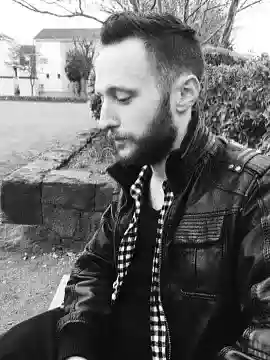
About the author
Michael David Wilson is the founder of the popular UK horror website, podcast, and publisher, This Is Horror. Michael is the author of the novella, The Girl in the Video, and the novel, They’re Watching, co-written with Bob Pastorella. His second novella, House of Bad Memories, lands in 2021 via Grindhouse Press. His work has appeared in various publications including The NoSleep Podcast, Dim Shores, Dark Moon Digest, LitReactor, Hawk & Cleaver’s The Other Stories, and Scream. You can connect with Michael on Twitter @WilsonTheWriter. For more information visit www.michaeldavidwilson.
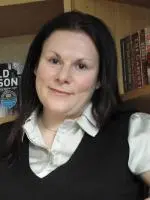 1. Alison Littlewood
1. Alison Littlewood
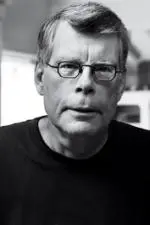 2. Stephen King
2. Stephen King
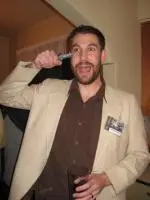 3. Jeremy Robert Johnson
3. Jeremy Robert Johnson
 4. Bret Easton Ellis
4. Bret Easton Ellis
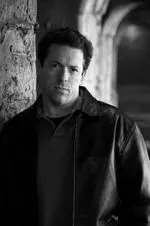 5. Richard Thomas
5. Richard Thomas
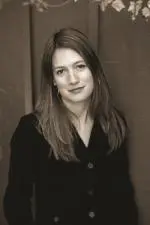 6. Gillian Flynn
6. Gillian Flynn
 7. Sarah Langan
7. Sarah Langan
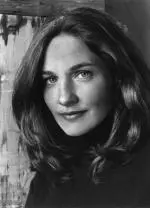 8. A.M. Homes
8. A.M. Homes
 9. Paul Tremblay
9. Paul Tremblay








